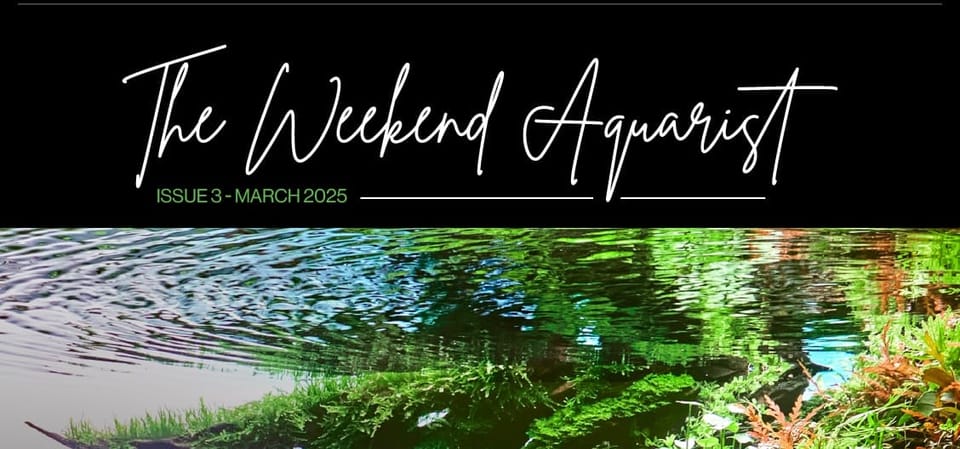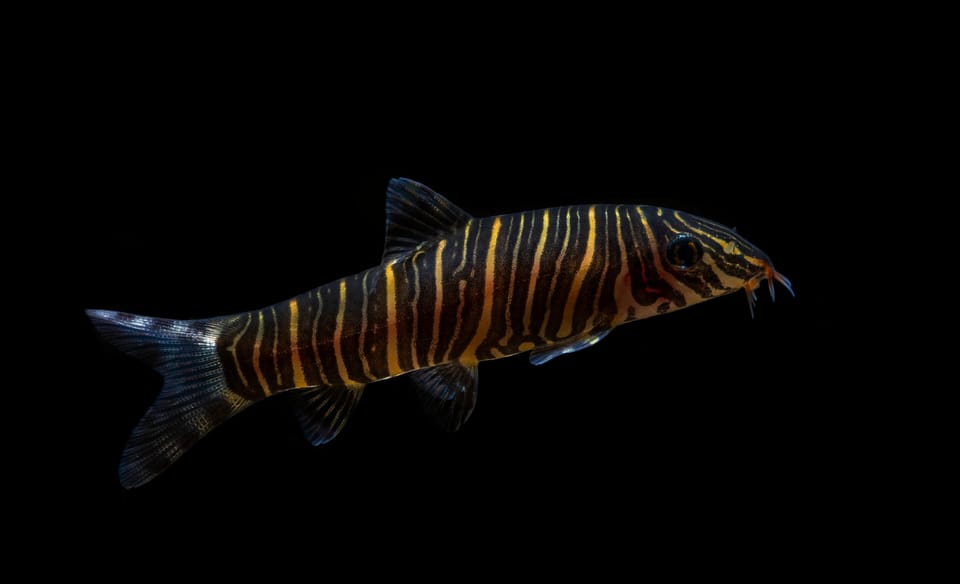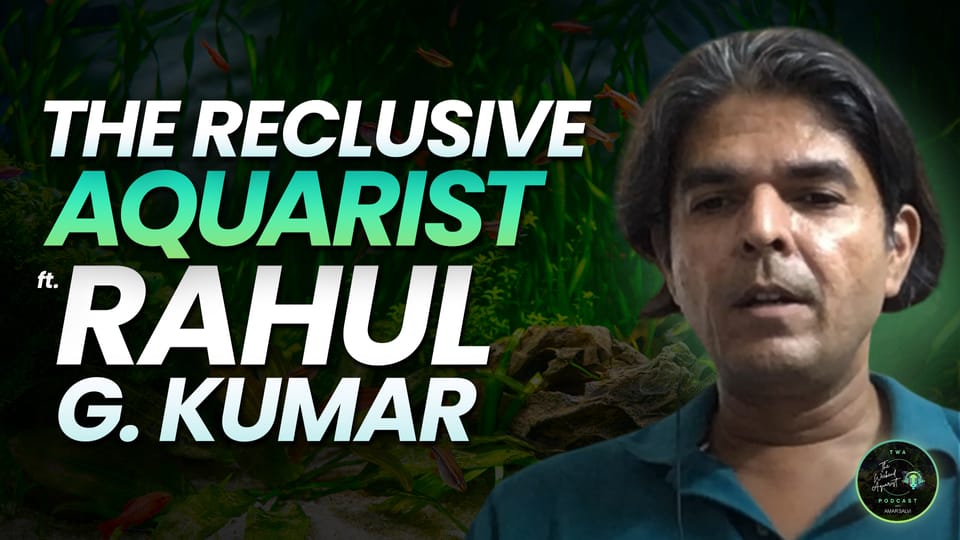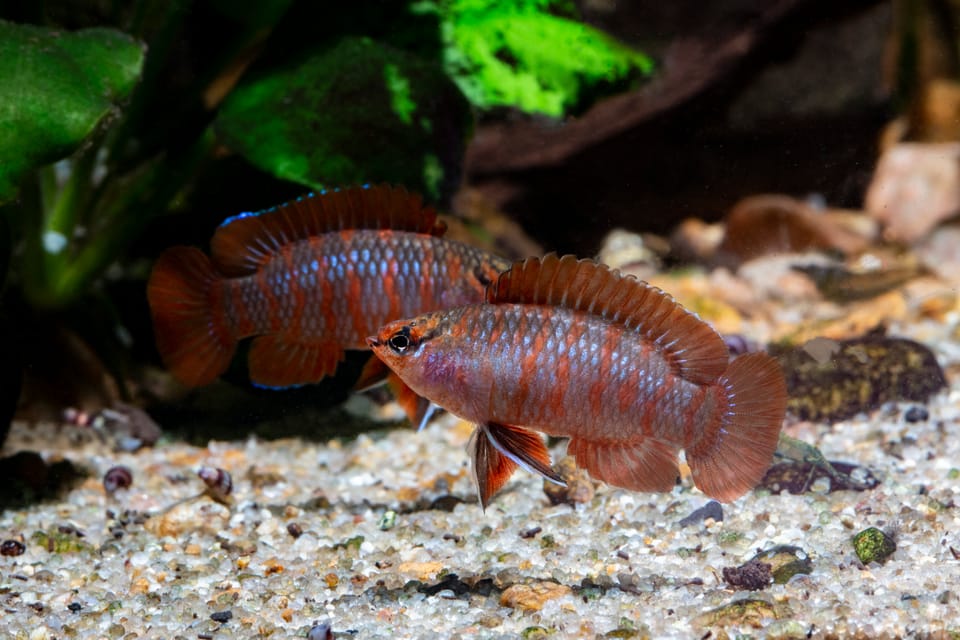Botia dario: The Bengal Loach – A Feisty Indian Native
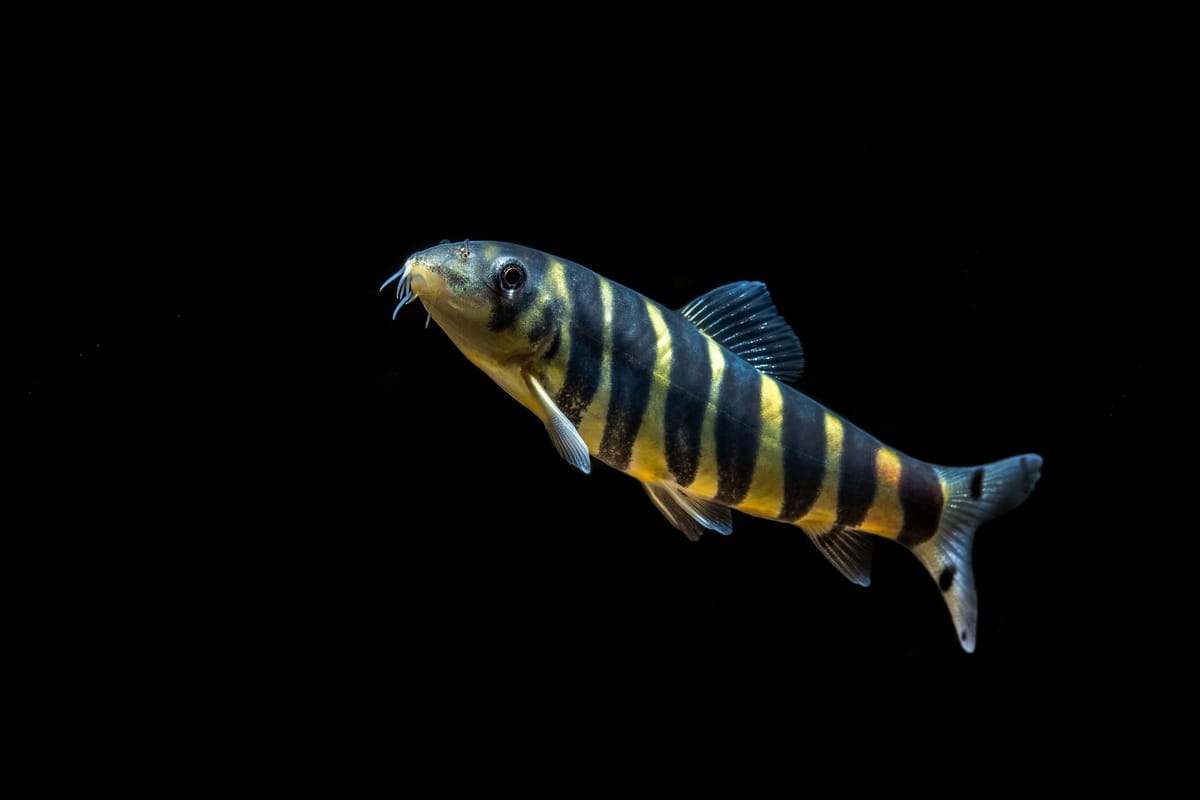
Among the vibrant freshwater loaches of South Asia, Botia dario, commonly known as the Bengal Loach, stands out for its striking colouration, active behaviour, and importance in the aquarium trade.
Natural Habitat & Distribution
Botia dario is primarily found in India and Bangladesh's Ganges, Brahmaputra, and Mahanadi river basins. It thrives in clear, fast-flowing streams and rivers, navigating through rocky and sandy substrates. These environments provide abundant hiding spots, which mimic the conditions necessary for their well-being in home aquariums.
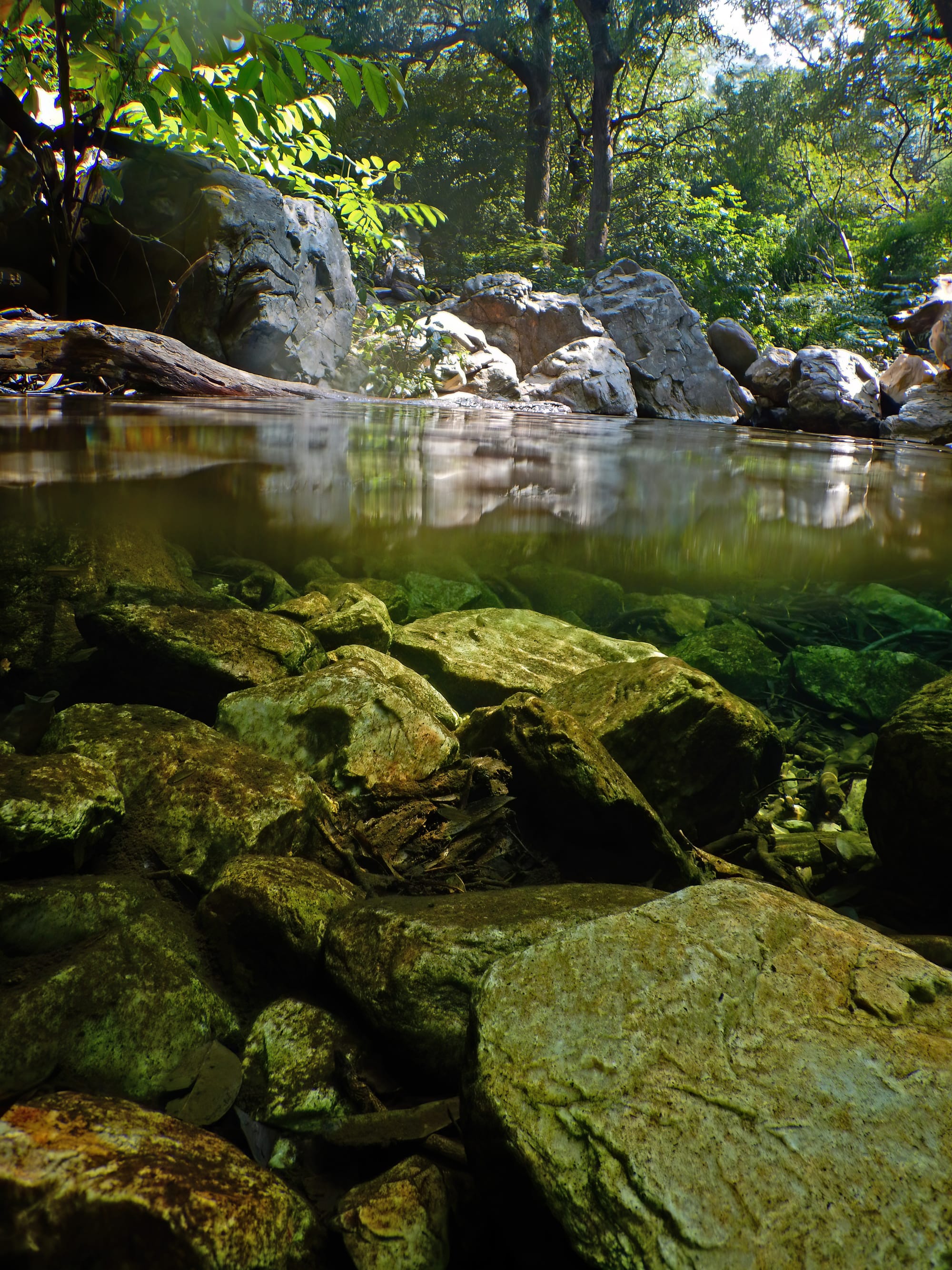
Image credits: Beta Mahatvaraj a.k.a. Meenkaran
Physical Characteristics
This medium-sized loach can grow up to 15 cm (6 inches) in length. It features a deep golden-brown to orange colouration, with distinct dark vertical bands running along its body. Its slightly downturned mouth has barbels that help it search for food among the substrate. The species’ sharp suborbital spines serve as a defense mechanism, making handling difficult without proper care.
Behavior & Compatibility
The Bengal Loach is known for its boisterous and social nature. In the wild, it forms loosely structured groups, and in aquariums, it thrives best when kept in groups of five or more. It can become territorial or aggressive towards other bottom-dwelling fish when kept singly or in pairs.
Botia dario is a highly active fish and enjoys exploring its surroundings. It has a curious personality, often seen investigating crevices and digging through the substrate. This species is also known for its unique sleeping positions, sometimes resting on its side, which can alarm new aquarists unfamiliar with its behaviour.
In a community setup, it can coexist with robust, similarly sized fish such as:
- Barbs (e.g., Rosy Barbs, Denison Barbs)
- Danios
- Larger Rasboras
- Gouramis
Avoid housing it with slow-moving or delicate species, as its energetic nature may cause stress.
Diet & Feeding
Botia dario is an omnivore with a preference for protein-rich foods. In the wild, it feeds on invertebrates, insect larvae, and plant matter. In captivity, its diet should be varied and include:
- Sinking pellets and wafers
- Frozen or live foods such as bloodworms, brine shrimp, and daphnia
- Blanched vegetables like zucchini and spinach
Feeding a diverse diet helps maintain its vibrant colouration and overall health.
Aquarium Care & Setup
To replicate its natural habitat, an ideal aquarium for Botia dario should include:
- Tank Size: A minimum of 75 gallons for a group of 5 or more.
- Substrate: Soft sand or smooth gravel to prevent injury to their sensitive barbels.
- Filtration: A strong filter with good water flow, as they prefer well-oxygenated environments.
- Hiding Spaces: Rocks, caves, and driftwood provide essential cover to reduce stress.
- Water Parameters:
- Temperature: 22–28°C (72–82°F)
- pH: 6.0–7.5
- Hardness: 5–15 dGH
Botia dario is sensitive to poor water conditions, so regular water changes and a stable environment are crucial.
Role in the Aquarium
Aside from its visual appeal, this species serves a practical role by controlling pest populations such as snails. It actively scavenges for uneaten food and algae, making it a beneficial addition to well-maintained setups.
Breeding Challenges
Breeding Botia dario in captivity is extremely rare. Most specimens available in the trade are wild-caught. In their natural environment, they likely reproduce during the monsoon season, triggered by changes in water parameters and seasonal flooding. However, successful captive breeding remains largely undocumented.
Conservation Status & Ethical Considerations
While Botia dario is not currently listed as endangered, habitat destruction and overcollection for the aquarium trade pose potential threats to its population. Ethical sourcing and responsible fishkeeping practices help ensure this species remains available for future generations of aquarists.
Conclusion
Botia dario is a charismatic, active, and resilient species that brings both visual interest and utility to an aquarium. For experienced aquarists who can meet its care requirements, this loach provides years of fascinating behaviour and natural beauty. Whether admired for its striking patterns or valued for its practical role, the Bengal Loach is truly a gem among Indian native fish.
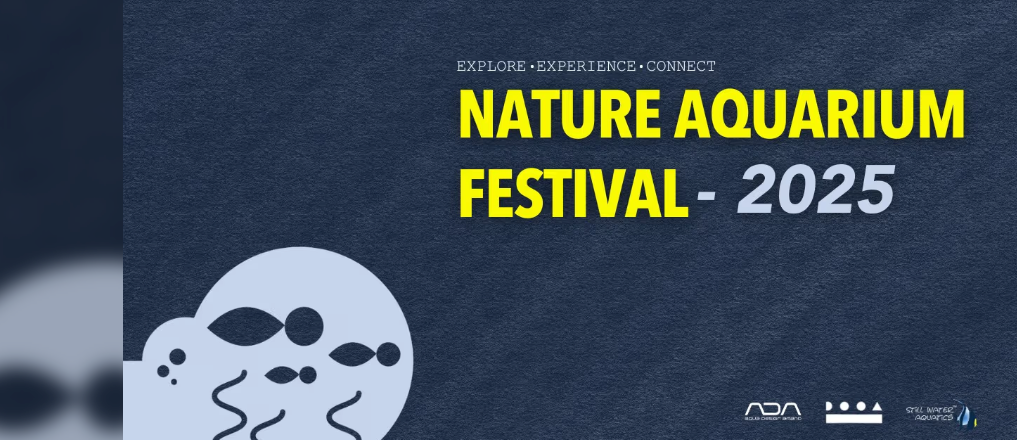
Nature Aquarium Festival 2025
is on February 22nd in Bengaluru
Nature Aquarium Festival 2025
Feeling disconnected from nature in today’s fast-paced world?
The Nature Aquarium Festival is your chance to explore, experience, and connect with the spirit of nature. It’s not just an event—it`s a celebration of aquatic artistry, creativity, and the deep bond we share with Mother Nature. Whether young or old, new to aquascaping or experienced, this celebration of aquatic life will inspire awe, bring peace, and deepen your connection to nature.
Event Highlights:
Join the Creation of the World`s Smallest Aquarium: Witness the renowned Suikei creator craft one of the world’s smallest nature aquariums live.
Fun Competitions:Participate in exciting fun challenges that bring thrilling experience where you can win exciting prizes.
The Great Indian Aquascaping Awards: Celebrate and get inspired by India’s top aquascaping talent.
Exclusive Goodies: Take home a DOOA Glass Pot Shizuku and other surprise gifts worth ₹5,000.
Raffle & Lucky Draw: Buy a raffle ticket and stand a chance to win world-class ADA products worth ₹25,000.
Networking, Shopping & Dining: Connect with fellow enthusiasts over high tea and dinner, shop for unique ADA products, and browse the Plants Bazaar for exotic jungle plants and rare finds.
Live Exotic Plant Auction: Don’t miss the exciting live auction of rare and exotic plants, adding an extra thrill to your experience.
And Much More: A day filled with inspiration, fun, and unforgettable experiences!
️Ticket Details: ₹4,999 (inclusive of taxes)
Raffle tickets: ₹2,000 (optional) with a chance to win ADA products worth ₹25,000/-
Date: 22nd February 2025
Location: Falcon`s Den, Prestige Falcon Tower Bengaluru
Time: Starts at 3 PM and concludes with dinner.
Rediscover how the beauty of nature can transform your world, even in the smallest of spaces.

